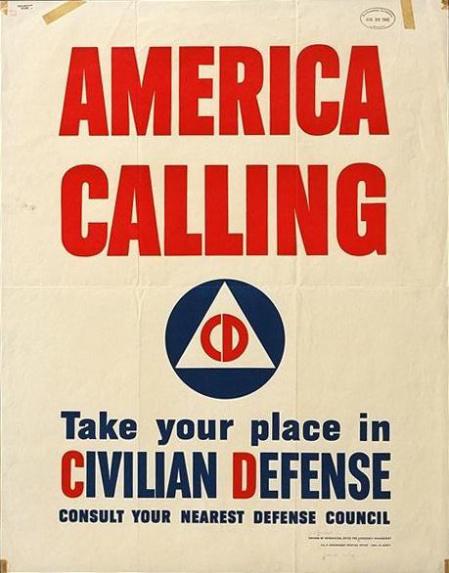
By Eugene P. Wigner??– (Nov. 1902 – Jan. 1995) ??Renowned physicist and civil defense analyst. Won the Nobel Prize in physics in 1963.
(NOTE: This article was originally published in one of TACDA’s first issues of the Journal of Civil Defense??- forty-six years ago, June 1968. It is interesting that, even after all these years, the message, the concern, and the question remains the same.)
I have often tried to explain the need for a vigorous civil defense effort, why and how such an effort would go far in preserving peace and how it could save many millions of lives if war should come nevertheless. “Why Civil Defense?” would be an apt title for this subject because we want the civil defense effort to be strong and vigorous. But my subject is also the opposite: ??”Why No Civil Defense?”. What are the roadblocks? ??Why isn’t the civil defense effort as strong and effective as we would like it to be? ??Why is there not a popular demand for it? There are, it seems to me, three principal reasons for this .
The first reason is the power of the anti-civil defense establishment. What provides this strength? What are the motives of the establishment?
There are, of course, those who would like to see our country become a second or third-rate power, the nakedness and vulnerability of its people forcing its government to accede to the demands of those governments whose people are better protected or who care less for human life . Persons who have these desires are, however, small in number, and they contribute but very little to the undeniably very great strength of the anti-civil defense establishment. Can this establishment muster valid arguments against civil defense? I think it can, and this is the reason for citing this cause for our lagging civil defense efforts as the first of my “principal reasons”.
If we install shelters, store food and other supplies, we make preparations against an attack on our country. Such preparations naturally set us apart from those against whose attack we protect ourselves and render it more difficult to develop a true friendship between the governments of communist countries and ourselves. This is the theory of Festinger, often derided by social scientists, but I do think there is something to it even if not in the extreme form propounded by Festinger. ??It is, of course, true that the hate propaganda of the other side also interferes with the development of the true friendship, and it is sad – very sad – that this is never criticized by the anti-civil defense establishment.
The second reason why the civil defense effort is not more vigorous and why there is not more public demand for it is that it is unpleasant to think about disasters, particularly disasters as severe as nuclear war. Let us note that insurance policies offering compensation in case of fire are called fire insurance policies, but that the policies protecting our families in case of our death are called life insurance policies. No similarly euphemistic name has been invented for civil defense, and it would not help much if one were invented. Building shelters would remind us in any case of a great and terrible calamity that could befall us, and we all are reluctant to think about such calamities. Why dig a hole in the ground where one may have to live for weeks if one can, instead, walk in the sunshine? We have a tradition for work, and many of us enjoy it, but we do not have a tradition of thinking about disasters which may strike us. However, whereas our reluctance to face the temporary nature of our sojourn in this world does not, as a rule, shorten our lives, our reluctance to protect ourselves may bring war nearer.
The third reason that we do not take civil defense very seriously is that we are all too conceited. Sure, other people have been stricken by disasters, other nations have been wiped out or subjugated. But this cannot happen to us, we say. It is not even decent to think about it . I once went to see the now deceased Albert Thomas, who prevented a good deal of civil defense legislation from being enacted in the House of Representatives. He listened to me for a few minutes and then said: “Take it easy, young man, take it easy. This country is so strong it does not need any civil defense.” Most of us would express this self-defeating doctrine less clearly and less bluntly than did Mr. Thomas. But what he said is present in the minds of all of us. On a peaceful day like today, when we are absorbed by so many more pleasant thoughts, is it not unreasonable to think about some country attacking us with nuclear weapons?
In a very real sense, I believe, it will be a test of the democratic ideal whether our people can resist burying their heads in sand or not, whether or not they, can muster the foresight and maturity to carry out the unpleasant and unpopular task of protecting themselves, their country, and their freedom against dangers which seem far away. Nothing but illusory comfort can be gained by closing our eyes to these dangers.
